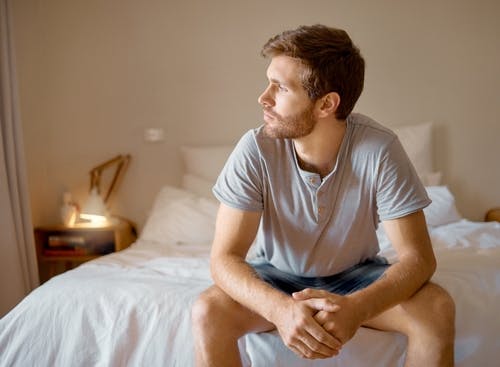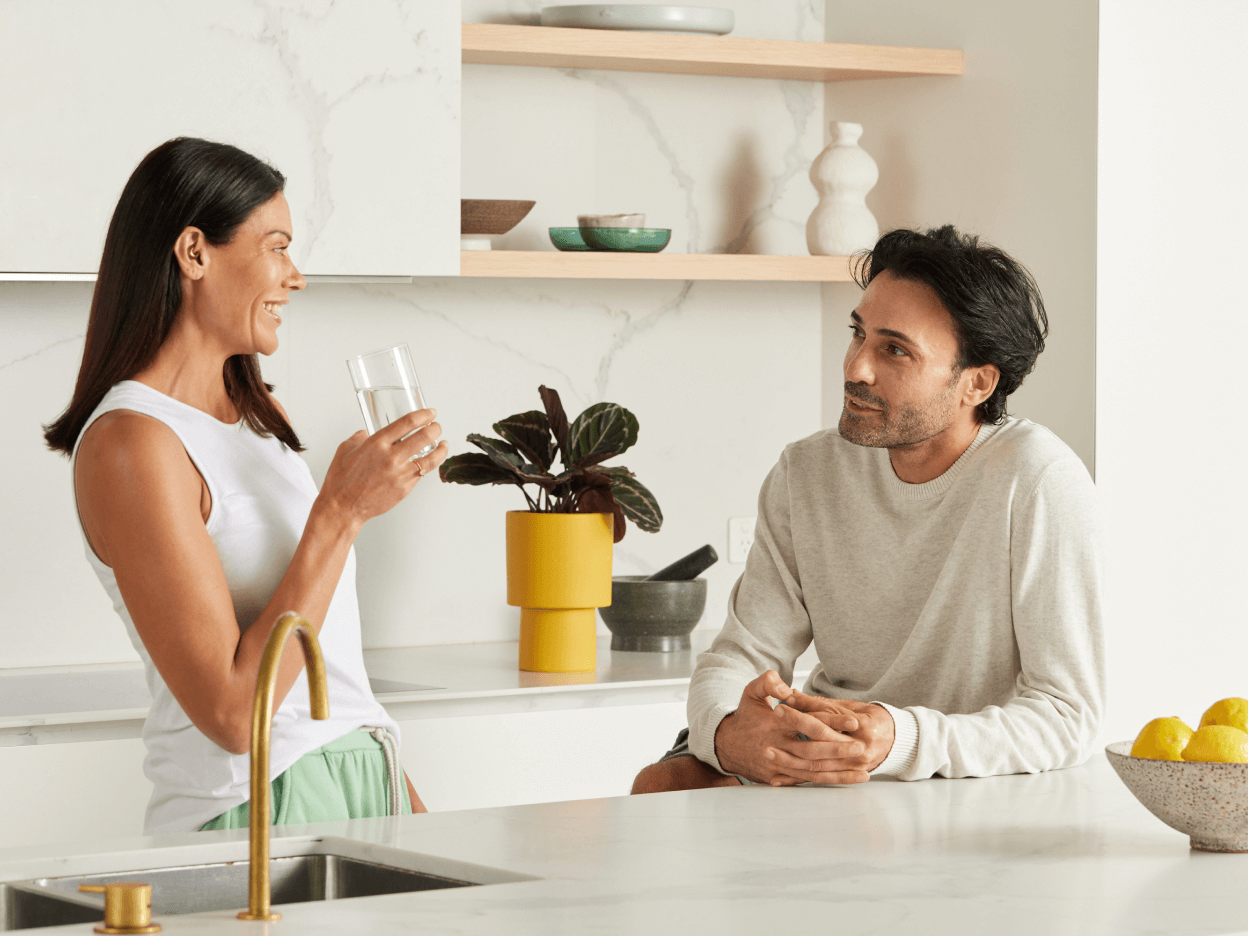What is anxiety?
Before we talk about ‘how to know if you have anxiety’, we first have to discuss what it is.
Anxiety is a feeling of fear, worry, and unease about an event or situation. It is important to recognise the difference between normal anxiety and an anxiety disorder. Anxiety is a normal reaction to stressful situations and usually subsides once the situation is over. An anxiety disorder, however, is more persistent and can interfere with daily activities, relationships, and your overall quality of life.
What are the three main symptoms of anxiety?
Anxiety is a mental health disorder characterised by feelings of worry, nervousness, or fear that are strong enough to interfere with one’s day-to-day activities. It can manifest in different ways, such as physical, mental, and behavioural symptoms:[2]
1. Physical symptoms. Anxiety can result in physical reactions such as increased heart rate, sweating, nausea, muscle tension, trembling, and headaches.
2. Emotional symptoms. Anxiety can cause an individual to experience racing thoughts, difficulty concentrating, difficulty making decisions, trouble remembering, and a feeling of incoming danger.
3. Behavioural symptoms. Anxiety can lead to avoidance behaviours and difficulty engaging in social situations.
If you are experiencing symptoms of anxiety, it’s important not to self-diagnose based on online advice about ‘how to know if you have anxiety’ because there are other mental health conditions that can cause similar symptoms.
What does an anxiety attack feel like?
The phrase ‘anxiety attack’ doesn’t have a concrete medical definition.[3] Instead, it’s used loosely or inconsistently to refer to a wide range of different symptoms. It is more likely the experience of anxiety symptoms or the experience of having a panic attack that is in mind when using the phrase.
A panic attack is a sudden surge of intense fear or discomfort that can peak within minutes and can feel like an impending sense of doom. Symptoms may include heart palpitations, chest pain, sweating, trembling, shortness of breath, a choking sensation, nausea, dizziness, and feeling unreal or detached from yourself or the world, also known as ‘derealisation’.[4]
The onset of a panic attack might occur with little warning, even when you’re asleep. They can happen several times a day, and each instance can persist for a couple of minutes to around a half hour. After one happens, you may feel exhausted.[5]
It is important to remember that although a panic attack can be very frightening, it will pass. For tips on how to calm anxiety attack as well as how to know if you have anxiety, talk to your Mosh doctor about coping strategies and relaxation techniques to help you manage your condition.
Is it possible to test myself for anxiety?
There are a variety of tests and questionnaires available online that can help you understand how to know if you have anxiety by identifying possible symptoms. Some of the tests include:
Generalized Anxiety Disorder Scale (GAD-7)
The GAD-7 is a 7-item questionnaire that can be used to assess the extent of your anxiety symptoms. As an established patient-reported outcome measure (PROM), it is not only used to screen patients for anxiety symptoms but also to track the efficacy of treatments.[6]
The Beck Anxiety Inventory (BAI)
The BAI is a self-report assessment consisting of twenty-one questions that examine both physical and cognitive symptoms in order to discern between people who suffer from anxiety disorders and those who do not.[7]
State-Trait Anxiety Inventory (STAI)
The STAI is an instrument that measures your levels of anxiety, both in the moment and over time. It consists of two separate dimensions: one is called the state scale and measures current feelings of anxiety; the other scale is called the trait scale and assesses how anxious you are generally.[8]
It is important to remember, however, that these tests are not substitutes for mental health evaluations by a doctor and should only be used as a means of self-assessment. Additionally, beyond researching how to know if you have anxiety, it is recommended that you speak with a doctor to receive, if necessary, a diagnosis and treatment plan tailored to your needs.
Unlike your average depression and anxiety test or how depressed am I quiz, Mosh’s mental health questionnaire is connected directly to our doctors. Our doctors can use the information you provide to personalise advice for you. You can consult a doctor by SMS, chat, or video within twenty-four hours of completing the quiz.
You can ask your doctor any questions about how to relieve stress, the symptoms of social anxiety, and ‘What are the signs of depression?’
If necessary for your situation, your doctor can recommend therapy or medication, which we can deliver discreetly, no matter where you are in Australia.
Aside from mental health, Mosh specialises in taboo health issues like sexual health, hair and weight loss, and skincare. We believe there’s no issue that is too sensitive to be taken seriously. We’re committed to making it easier for people to access the help they need when they need it most.
So when you’re ready to talk, we’re here to help.

